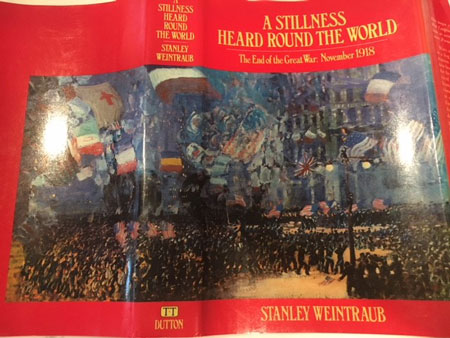Many of you follow my daily post on Facebook that I branded A Century Ago. For five years I have studied the causes of World War I, how it not only affected lives in both the United States and Europe but throughout the world. Europeans were known for their colonies around the world and brought them in when the going got worse.
I have formed an opinion of the causes of the war. The more I researched, though, the more I wanted to know about the people in Germany. Men, materials, food, medical supplies, and clothing were sent to the Western Front by 1917. What was happening with women, children, and the elderly?
That was not an easy find. My sources are newspaper local to the northeast Texas area. What was the mindset here? There was little sympathy for Germany or her people. It wasn’t the same elsewhere in the United States or even in other parts of Texas. Much like today, public opinion was varied and equally controversial.
My Kindle is full of books about WWI; I have an entire book shelf of WWI books and others stacked in piles. Thanks goodness I can successfully read two books at one time. I have a book upstairs in my office, and one downstairs for when I’m waiting on laundry or dinner to cook. It has almost become an obsession with me.
My paternal grandfather served in the 90th Division, 315th Engineers, Fourth Platoon, Company A where he was a corporal. He often talked about his adventures after the war when he drew maps of the Alsace-Lorraine region in France. I still have some of those maps. But he never mentioned what engineers did during the war, or a role in a combat unit, and other details. I know he was issued a gas mask, and a rifle along with a pistol.
He did talk about the morning of November 11, 1918. Every piece of artillery, every rifle and any other weapon available were busy shooting at the enemy; and that of course depended on which side of the Western Front you were on. My grandfather thought that every man in the entire area wanted to be able to claim he fired the last round of World War I.
Stanley Weintraub interviewed and collected reflections from countless soldiers from all sides of WWI. Some were tragic, others joyous celebrations at the news of the Armistice, and a few regrets from young men just arriving at the front. All appear in A Stillness Heard Round the World that he published in 1985.
The chaos in Berlin is vividly described. By the time German troops from the front made their ways home, the country was filled with Socialists and Communists and very hungry citizens. The Allies did not immediately end the blockade. Food was so scarce starvation was rampant.
From now until November 11, 1918 I plan to focus my post A Century Ago on events, horrors, and chaos for Europeans during that time. German immigrants in the U. S. were tormented, but not starving. What happened to prisoners of war? The numbers captured by Allied troops at the end of the war was amazing. What about the homeless women and children throughout the war zone?
I have one more book to finish, Paris 1919: Six Months That Changed the World. It paints a sad story that the reader realizes leads to more war within a few years. The joy on November 11, 1918 becomes tears, fear and anger in September 1939 when Germany marched into Poland.

